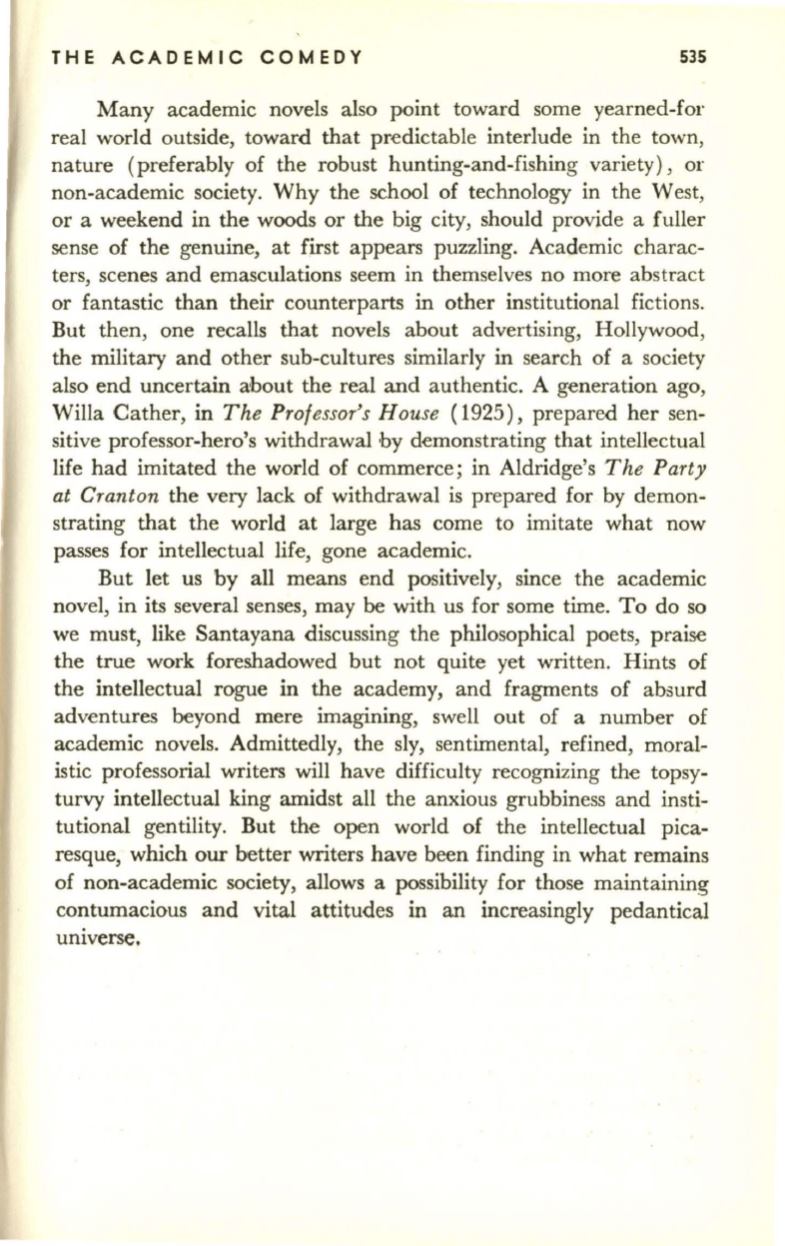
THE ACADEMIC COMEDY
535
Many academic novels also point toward some yearned-for
real world outside, toward that predictable interlude in the town,
nature (preferably of the robust hunting-and-fishing variety) , or
non-academic society. Why the school of technology in the West,
or a weekend in the woods or the big city, should provide a fuller
sense of the genuine, at first appears puzzling. Academic charac–
ters, scenes and emasculations seem in themselves no more abstract
or fantastic than their counterparts in other institutional fictions.
But then, one recalls that novels about advertising, Hollywood,
the military and other sub-cultures similarly in search of a society
also end uncertain about the real and authentic. A generation ago,
Willa Cather, in
The ProfessorJs House
(1925), prepared her sen–
sitive professor-hero's withdrawal by demonstrating that intellectual
life had imitated the world of commerce; in Aldridge's
The Party
at Granton
the very lack of withdrawal is prepared for by demon–
strating that the world at large has come to imitate what now
passes for intellectual life, gone academic.
But let us by all means end positively, since the academic
novel, in its several senses, may be with us for some time. To do so
we must, like Santayana discussing the philosophical poets, praise
the true work foreshadowed but not quite yet written. Hints of
the intellectual rogue in the academy, and fragments of absurd
adventures beyond mere imagining, swell out of a number of
academic novels. Admittedly, the sly, sentimental, refined, moral–
istic professorial writers will have difficulty recognizing the topsy–
turvy intellectual king amidst all the anxious grubbiness and insti–
tutional gentility. But the open world of the intellectual pica–
resque, which our better writers have been finding in what remains
of non-academic society, allows a possibility for those maintaining
contumacious and vital attitudes
in
an increasingly pedantical
universe.


